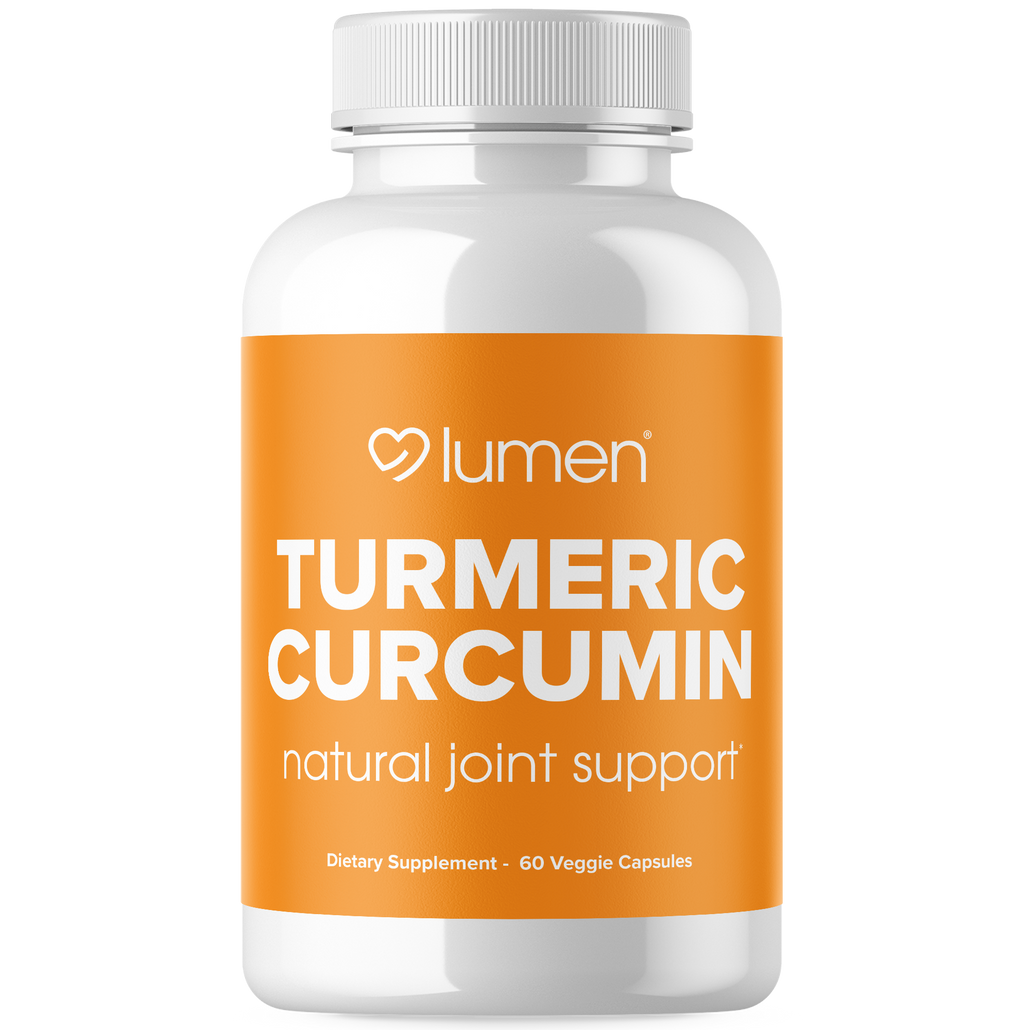Turmeric Could be as Powerful as These 4 Drugs
Here's how turmeric curcumin stacks up against some of the top-selling drugs on the market
Turmeric Could be as Powerful as These 4 Drugs
Here's how turmeric curcumin stacks up against some of the top-selling drugs on the market
Curcuminoids, the active ingredients found in turmeric, are some of the most powerful herbal substances discovered.
These claims are supported by thousands of experiments evaluating the benefits of turmeric, and the results are very promising. In fact, turmeric was used in ancient ayurvedic medicine to treat conditions such as arthritis and joint pain.
Various studies have shown that curcuminoids have the following properties:
- Antioxidant
- Anti-inflammatory
- Neuroprotective
- Cardioprotective
- Anti-Cancer effects
While research may still be a few years away from uncovering all the health benefits of turmeric, results suggest turmeric may be as effective as many conventional drugs.
Curcuminoids, the active ingredients found in turmeric, are some of the most powerful herbal substances discovered.
These claims are supported by thousands of experiments evaluating the benefits of turmeric, and the results are very promising. In fact, turmeric was used in ancient ayurvedic medicine to treat conditions such as arthritis and joint pain.
Various studies have shown that curcuminoids have the following properties:
- Antioxidant
- Anti-inflammatory
- Neuroprotective
- Cardioprotective
- Anti-Cancer effects
While research may still be a few years away from uncovering all the health benefits of turmeric, results suggest turmeric may be as effective as many conventional drugs.
4 Drugs that Turmeric Matches up With
4 Drugs that Turmeric Matches up With
1. Lipitor vs. Turmeric
Lipitor, the brand of the cholesterol-lowering drug atorvastatin, is a blockbuster drug that has enjoyed unparalleled success since its inception in the ’90s.
Interestingly, turmeric and Lipitor are going head-to-head, according to a 2008 study. The study published in the journal Drugs in R&D found that the effects of a standardized preparation of curcuminoids on endothelial function, inflammation, and oxidative stress were comparable to those of atorvastatin.
In another study, researchers revealed that curcumin could improve the symptoms of muscle damage resulting from the use of atorvastatin.
Moreover, some researchers also believe that turmeric could be used along with statins to lower the dose of the latter and reduce the incidence of the side effects.
2. Glucophage vs. Turmeric
Glucophage (metformin) is an oral antidiabetic medication that treats type 2 diabetes. Nevertheless, it seems to have found itself in the thick of competition, with curcumin rapidly closing the gap.
It is well known that curcumin improves almost every hallmark of diabetes, such as insulin resistance, elevated blood sugar, hyperlipidemia, and beta-cell damage.
Interestingly, one study found that curcumin and other related compounds such as tetrahydrocurcuminoids could be 400 to 100,000 times more potent than metformin in regulating the enzymes that influence glucose metabolism.
3. Advil vs. Turmeric
Advil (ibuprofen) is a pain medication used in headache, dental pain, menstrual cramps, muscle aches, or arthritis.
It is an NSAID (a non-steroidal anti-inflammatory drug) and works by reducing the inflammation that is responsible for the pain. Because turmeric is a powerful anti-inflammatory substance, scientists have looked at its pain-relieving effect and the results are promising.
Related: Turmeric Curcumin vs NSAIDs: The Battle of Anti-Inflammatories
In a 2014 multi-center study, researchers randomly administered turmeric extract and ibuprofen to 367 patients with primary knee osteoarthritis. After 4 weeks, they found that the extract had a comparable pain-relieving effect to the ibuprofen.
Most notably, the participants in the extract group experienced fewer incidences of upset stomach, which is a common side effect of pain medications including Advil.
Also Read: Yes, Turmeric Curcumin Is Terrific For Easing Joint Pain!
1. Lipitor vs. Turmeric
Lipitor, the brand of the cholesterol-lowering drug atorvastatin, is a blockbuster drug that has enjoyed unparalleled success since its inception in the ’90s.
Interestingly, turmeric and Lipitor are going head-to-head, according to a 2008 study. The study published in the journal Drugs in R&D found that the effects of a standardized preparation of curcuminoids on endothelial function, inflammation, and oxidative stress were comparable to those of atorvastatin.
In another study, researchers revealed that curcumin could improve the symptoms of muscle damage resulting from the use of atorvastatin.
Moreover, some researchers also believe that turmeric could be used along with statins to lower the dose of the latter and reduce the incidence of the side effects.
2. Glucophage vs. Turmeric
Glucophage (metformin) is an oral antidiabetic medication that treats type 2 diabetes. Nevertheless, it seems to have found itself in the thick of competition, with curcumin rapidly closing the gap.
It is well known that curcumin improves almost every hallmark of diabetes, such as insulin resistance, elevated blood sugar, hyperlipidemia, and beta-cell damage.
Interestingly, one study found that curcumin and other related compounds such as tetrahydrocurcuminoids could be 400 to 100,000 times more potent than metformin in regulating the enzymes that influence glucose metabolism.
3. Advil vs. Turmeric
Advil (ibuprofen) is a pain medication used in headache, dental pain, menstrual cramps, muscle aches, or arthritis.
It is an NSAID (a non-steroidal anti-inflammatory drug) and works by reducing the inflammation that is responsible for the pain. Because turmeric is a powerful anti-inflammatory substance, scientists have looked at its pain-relieving effect and the results are promising.
Related: Turmeric Curcumin vs NSAIDs: The Battle of Anti-Inflammatories
In a 2014 multi-center study, researchers randomly administered turmeric extract and ibuprofen to 367 patients with primary knee osteoarthritis. After 4 weeks, they found that the extract had a comparable pain-relieving effect to the ibuprofen.
Most notably, the participants in the extract group experienced fewer incidences of upset stomach, which is a common side effect of pain medications including Advil.
Also Read: Yes, Turmeric Curcumin Is Terrific For Easing Joint Pain!
4. Prozac vs. Turmeric
Prozac is an anti-depressant used to treat major depressive disorder (MDD) and anxiety disorders.
Excited by animal studies that showed antidepressant-like effects, in 2014 a team of researchers compared curcumin's efficacy with Prozac in individuals with MDD.
These researches found that curcumin was as effective as Prozac in the study participants after six weeks of treatment.
In fact, it was the first clinical evidence to further support the role of curcumin in major depressive disorder patients.
4. Prozac vs. Turmeric
Prozac is an anti-depressant used to treat major depressive disorder (MDD) and anxiety disorders.
Excited by animal studies that showed antidepressant-like effects, in 2014 a team of researchers compared curcumin's efficacy with Prozac in individuals with MDD.
These researches found that curcumin was as effective as Prozac in the study participants after six weeks of treatment.
In fact, it was the first clinical evidence to further support the role of curcumin in major depressive disorder patients.
The Bottom Line
The Bottom Line
Turmeric is one of the most effective supplements humans have created. In fact, the benefits of this wonderful spice seem too good to be true.
However, we have provided the proof above, and hundreds of other studies back up the benefits. Interested in trying turmeric curcumin yourself?
Consider taking a high-quality supplement that not only takes care of various aspects of your health but is created and formulated safely.
In addition, make sure to purchase a supplement with BioPerine in it as BioPerine (black pepper) increases the absorption of Curcumin by up to 2000%.
Turmeric is one of the most effective supplements humans have created. In fact, the benefits of this wonderful spice seem too good to be true.
However, we have provided the proof above, and hundreds of other studies back up the benefits. Interested in trying turmeric curcumin yourself?
Consider taking a high-quality supplement that not only takes care of various aspects of your health but is created and formulated safely.
In addition, make sure to purchase a supplement with BioPerine in it as BioPerine (black pepper) increases the absorption of Curcumin by up to 2000%.
Experience the Benefits of Turmeric Yourself
Visit Our Store Page to View All Our Products
References
1. Usharani, P., Mateen, A. A., Naidu, M. U. R., Raju, Y. S. N., & Chandra, N. (2008). Effect of NCB-02, atorvastatin and placebo on endothelial function, oxidative stress and inflammatory markers in patients with type 2 diabetes mellitus. Drugs in R & D, 9(4), 243-250.
2. Elshama, S. S., El-Kenawy, A. E. M., & Osman, H. E. H. (2016). Curcumin improves atorvastatin-induced myotoxicity in rats: Histopathological and biochemical evidence. International journal of immunopathology and pharmacology, 29(4), 742-752.
3. Sahebkar, A., Saboni, N., Pirro, M., & Banach, M. (2017). Curcumin: An effective adjunct in patients with statin‐associated muscle symptoms?. Journal of cachexia, sarcopenia and muscle, 8(1), 19-24.
4. Zhang, D. W., Fu, M., Gao, S. H., & Liu, J. L. (2013). Curcumin and diabetes: a systematic review. Evidence-Based Complementary and Alternative Medicine, 2013.
5. Kim, T., Davis, J., Zhang, A. J., He, X., & Mathews, S. T. (2009). Curcumin activates AMPK and suppresses gluconeogenic gene expression in hepatoma cells. Biochemical and biophysical research communications, 388(2), 377-382.
6. Kuptniratsaikul, V., Dajpratham, P., Taechaarpornkul, W., Buntragulpoontawee, M., Lukkanapichonchut, P., Chootip, C., ... & Laongpech, S. (2014). Efficacy and safety of Curcuma domestica extracts compared with ibuprofen in patients with knee osteoarthritis: a multicenter study. Clinical Interventions in aging, 9, 451.
7. Sanmukhani, J., Satodia, V., Trivedi, J., Patel, T., Tiwari, D., Panchal, B., ... & Tripathi, C. B. (2014). Efficacy and safety of curcumin in major depressive disorder: a randomized controlled trial. Phytotherapy research, 28(4), 579-585.
References
1. Usharani, P., Mateen, A. A., Naidu, M. U. R., Raju, Y. S. N., & Chandra, N. (2008). Effect of NCB-02, atorvastatin and placebo on endothelial function, oxidative stress and inflammatory markers in patients with type 2 diabetes mellitus. Drugs in R & D, 9(4), 243-250.
2. Elshama, S. S., El-Kenawy, A. E. M., & Osman, H. E. H. (2016). Curcumin improves atorvastatin-induced myotoxicity in rats: Histopathological and biochemical evidence. International journal of immunopathology and pharmacology, 29(4), 742-752.
3. Sahebkar, A., Saboni, N., Pirro, M., & Banach, M. (2017). Curcumin: An effective adjunct in patients with statin‐associated muscle symptoms?. Journal of cachexia, sarcopenia and muscle, 8(1), 19-24.
4. Zhang, D. W., Fu, M., Gao, S. H., & Liu, J. L. (2013). Curcumin and diabetes: a systematic review. Evidence-Based Complementary and Alternative Medicine, 2013.
5. Kim, T., Davis, J., Zhang, A. J., He, X., & Mathews, S. T. (2009). Curcumin activates AMPK and suppresses gluconeogenic gene expression in hepatoma cells. Biochemical and biophysical research communications, 388(2), 377-382.
6. Kuptniratsaikul, V., Dajpratham, P., Taechaarpornkul, W., Buntragulpoontawee, M., Lukkanapichonchut, P., Chootip, C., ... & Laongpech, S. (2014). Efficacy and safety of Curcuma domestica extracts compared with ibuprofen in patients with knee osteoarthritis: a multicenter study. Clinical Interventions in aging, 9, 451.
7. Sanmukhani, J., Satodia, V., Trivedi, J., Patel, T., Tiwari, D., Panchal, B., ... & Tripathi, C. B. (2014). Efficacy and safety of curcumin in major depressive disorder: a randomized controlled trial. Phytotherapy research, 28(4), 579-585.




